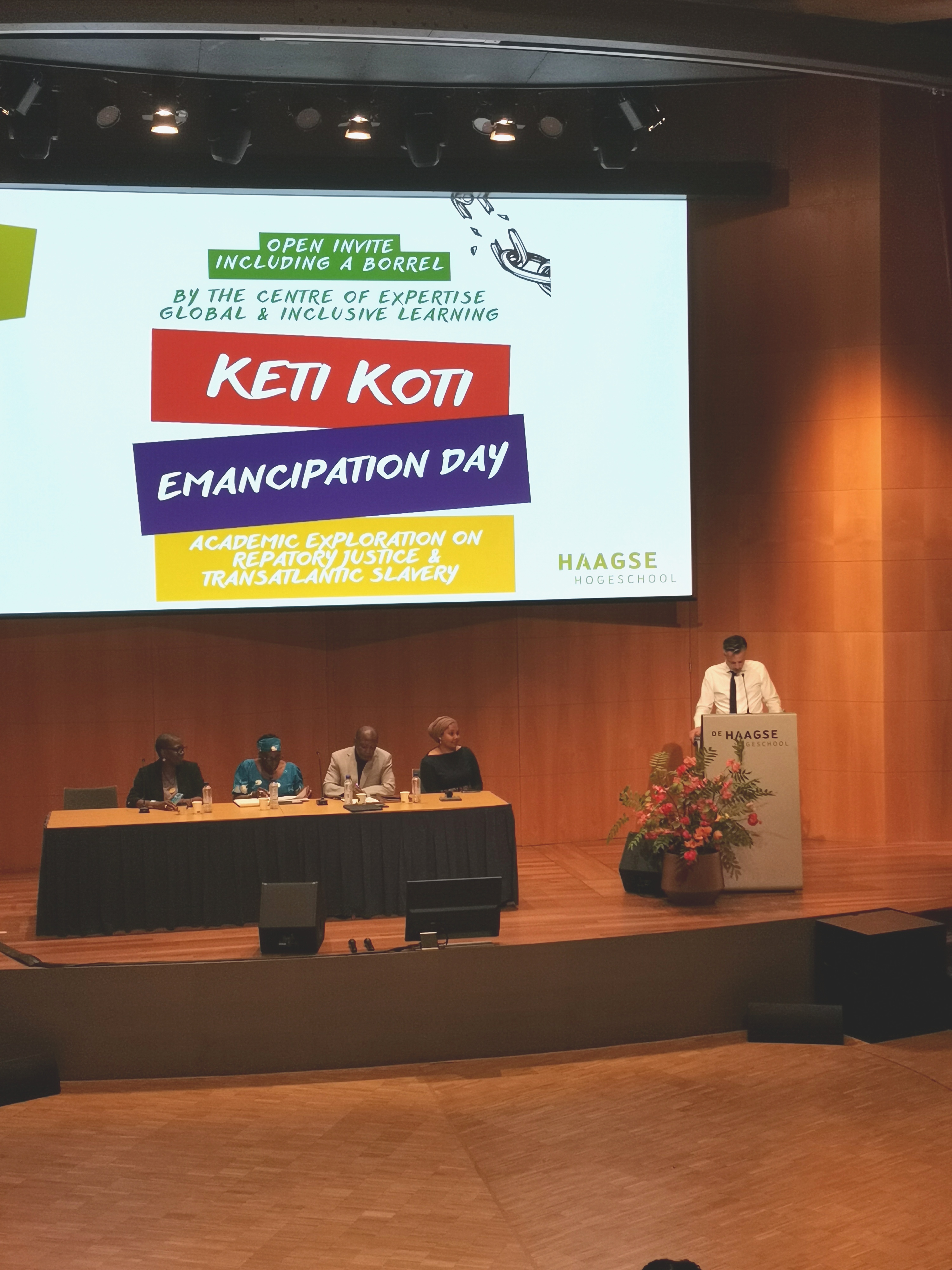Keti Koti Emancipation Day explores restorative justice
12 July 2023
The energy in the auditorium where the Emancipation Day event of research group Inclusive Education took place was uplifting. The event for academic exploration of restorative justice and transatlantic slavery brought...

The energy in the auditorium where the Emancipation Day event of research group Inclusive Education took place was uplifting. The event for academic exploration of restorative justice and transatlantic slavery brought several speakers from all over the world to The Hague University of Applied Sciences. All were enthusiastic about the role THUAS and in particular research group Inclusive Education took on. They also see the Dutch formal apology made by Prime Minister Rutte as a historical point of reflection. They were therefore hopeful about what all this means for the future for victims of the history of slavery.
In his opening speech, Arend Hardoff of the THUAS Executive Board expressed the hope that the sharing of knowledge would also inspire others and admitted he still had a lot to learn about the subject himself. Then the presentations began.
Youth drive change
The first speaker was Eric Phillips of the University of Guyana. He highlighted how all throughout history young people have been the leaders in changing thinking in society; "[y]outh are the essence of a progressive society". In doing so, he looked back to great names like Nelson Mandela, Martin Luther King, and Rosa Parks who started non-violent activism at a young age and pointed to Greta Thunberg and Naomi Seibt as present-day examples of this.
He also described what was missing from the formal apology made by Mark Rutte in December 2022. "It is not African slave trade but European slave trade." According to Phillips, an important aspect of restorative justice is understanding the brutality of (Dutch) actions and how this racism has seeped into the political system. That is why his speech urges young people to inspire change through activism.
In response to a question from the audience about how young people should bring about this change when education falls short in its narration of the history of slavery, Phillips pointed to the THUAS initiative taking place in that moment, indicating that within education you can have these kinds of discussions.
Beyond the comma
Enith Williams, a former banker in New York who moved back to Jamaica after the 2008 financial crisis, currently works for the Reparation Finance Lab. In her presentation, she asked how the 'comma', which Rutte talked about in his formal apology, can be changed into a long-term, purposeful, and full stop repair. In doing so, she spoke from her expertise on how the damages to be paid to victims of slavery's past are calculated and the different methods for doing so. Knowledge is shared between the CARICOM Reparations Commission and the Dutch government, "to get to a full stop that makes sense for everyone".
"I rest my case"
The afternoon ended with a brief reflection by Dr Barryl Biekman of the National Platform on Slavery History. She kept the audience in the room sharp by remarking that many of the young people who were once the frontrunners for change did not stop in later life, "sometimes we forget what aging people have meant for us". That is why it is never too late to inspire change. And with that, she rested her case.